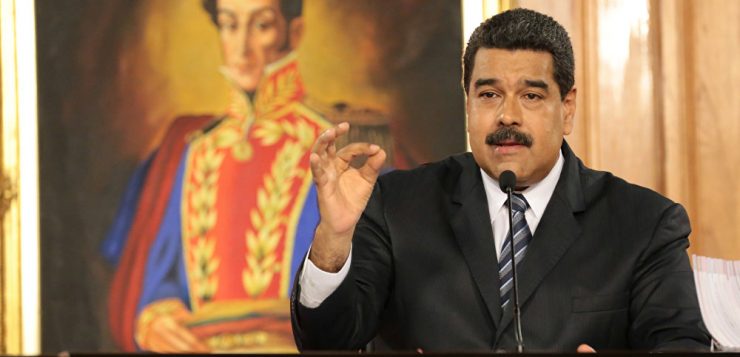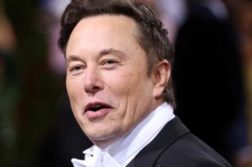Venezuelan President Nicolás Maduro announced in December the launch of “petro,” a new cryptocurrency that will be backed by oil, diamonds and gold reserves to circumvent sanctions from the Trump administration, but experts doubt this move will save the South American nation’s ailing economy.
“[Petro] will allow us to advance to new ways of international financing and socioeconomic development in the country,” the president said in his TV show Sundays with Maduro at the time. He pledged the Venezuelan cryptocurrency will “advance in monetary sovereignty, to make financial transactions and to vanquish U.S. economic blockade.”
Cryptocurrency transforms real money into virtual currency while encrypting information, which is transferred within a private and secure framework. A buyer then chooses the type and amount of virtual coins (such as the popular bitcoin). The process through which transactions are verified and added to a public ledger is called “mining,” and anyone who has access to the internet and appropriate hardware could participate. For some experts, “mining” requires a level of trust, and Venezuela’s economic mismanagement, political tension and lack of information in financial data stoke fear among market participants, according to credit rating agency Moody’s.
“[Petro] cryptocurrency is nothing more than just an oil-backed bond that has a registry on block chain,” Luis Carlos Díaz, a Caracas-based journalist and cyberactivist, told Newsweek. “The question here is, ‘who can trust petro?’ There are people with Bolivares [Venezuela’s currency] willing to purchase, but in the long term who will sustain [the project]? Nothing will be resolved.”
Even economists who have supported Venezuela’s populist policies said petro would not solve the regime’s economic woes. Mark Weisbrot, co-director of the Washington-based Center for Economic and Policy Research—an economic policy think-tank—told Newsweek it is “hard to see how bitcoin would help to resolve” a much-needed debt restructuring in the country “or other problems that would also need to be fixed.”
Weisbrot added that the “financial embargo imposed by the Trump administration makes it virtually impossible to restructure its debt, which is vitally important to any economic recovery program.”
Maduro’s experiment is doomed to failure, according to Siobhan Morden, head of Latin America fixed-income strategy at financial company Nomura. “It appears like a gimmick to leverage on the bitcoin mania,” she told Newsweek. “There are no technocrats to pull off any innovative foreign exchange rate regime, and there is no quick fix for the economic crisis.”
She later added, “I think the best reference I read was ‘Maduro’s crypto tokens will be known as empanadas and will be backed by the supply in the desk drawer in this office,’” in reference to the president’s act of eating a pastry on live television in November.
To make matters worse for Maduro, his cryptocurrency initiative met its first obstacle in the opposition-run Congress. The legislative body declared Tuesday that the president illegally seeks to mortgage oil reserves, and some legislators said that it is “tailor-made for corruption.” Jorge Millán, an assemblyman from the center-left political party Justice First, said that petro is a new “deception of the regime.”
It seems very likely that Maduro will ignore the assembly’s ruling, given that the regime established a powerful legislative body known as the Constituent Assembly in July, whose decisions and laws will override those made by other lawmakers—and it has declared itself to be above the opposition-run congress. Maduro expects to issue 100 million petros backed by 100 million barrels of oil reserves in forthcoming weeks, in hopes of avoiding payment delays that have accrued since the Trump administration prohibited U.S. financial institutions from obtaining debt issued by Venezuela.
It remains to be seen whether Venezuelans will purchase petro, but in a country that grapples with skyrocketing inflation, food and medical supply shortages, high crime rates and malnutrition, some nationals are relying on bitcoins to stay afloat. Nevertheless, the so-called “bitcoin miners” can end up behind bars for participating in such practice.
“There are Venezuelans using bitcoins and doing transactions to avoid the draconian foreign exchange in Venezuela,” Díaz added. “For so many years, people have begun mining, but they may face prison because it is prohibited to mine in this country.”
Venezuela is not the only country that wants to use cryptocurrency. Russia announced in December it might be looking to use cryptocurrency for oil trade, according to local reports.
Read more at:
http://www.newsweek.com/will-cryptocurrency-save-maduros-venezuela-trump-2018-779827?piano_t=1







